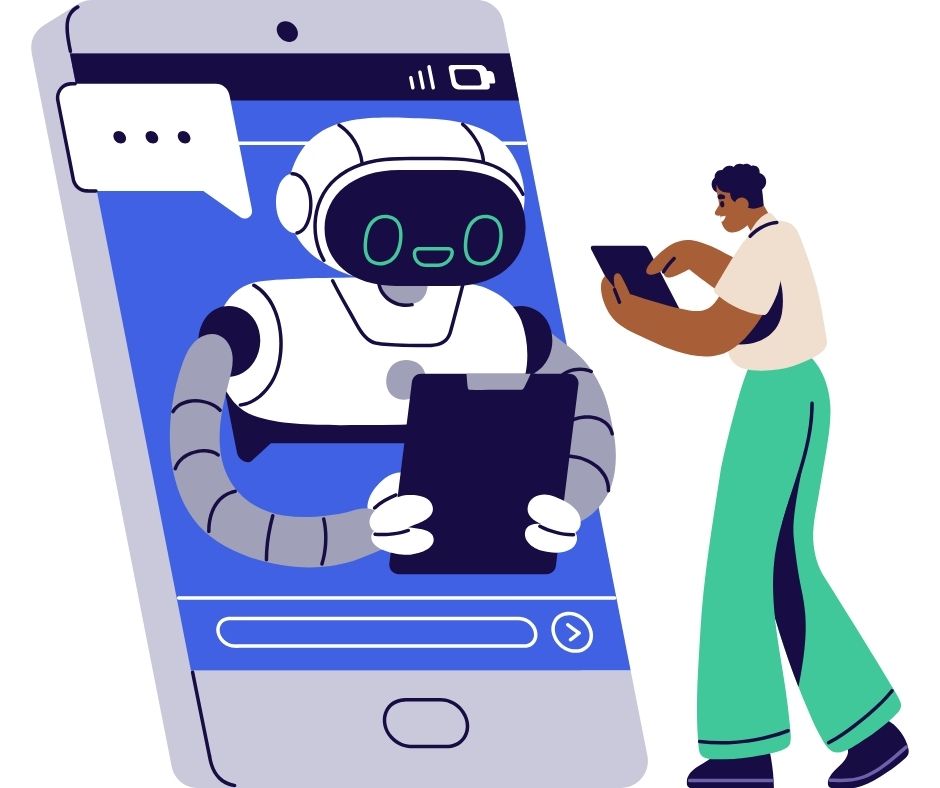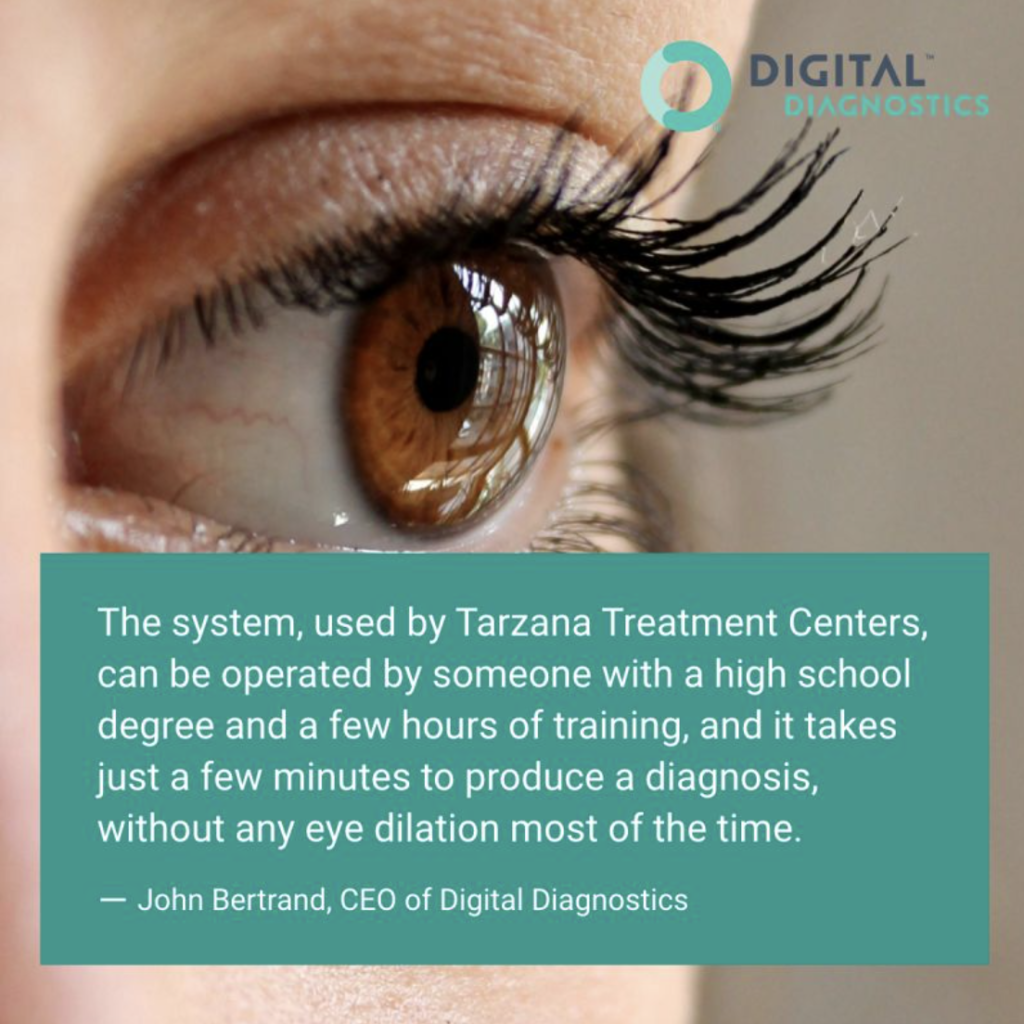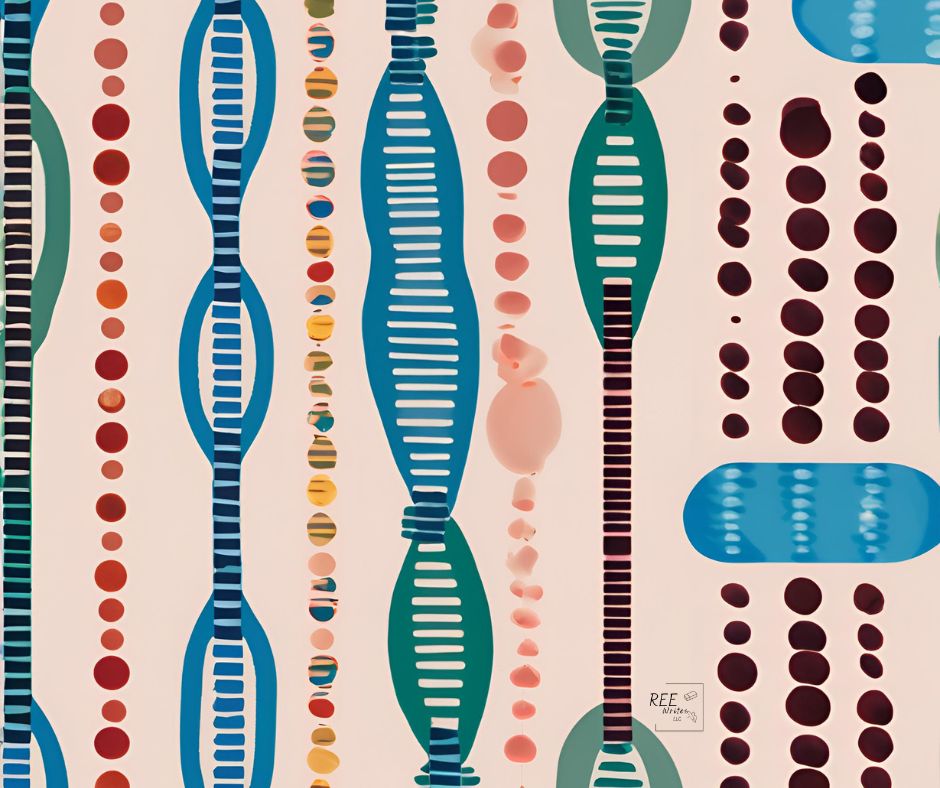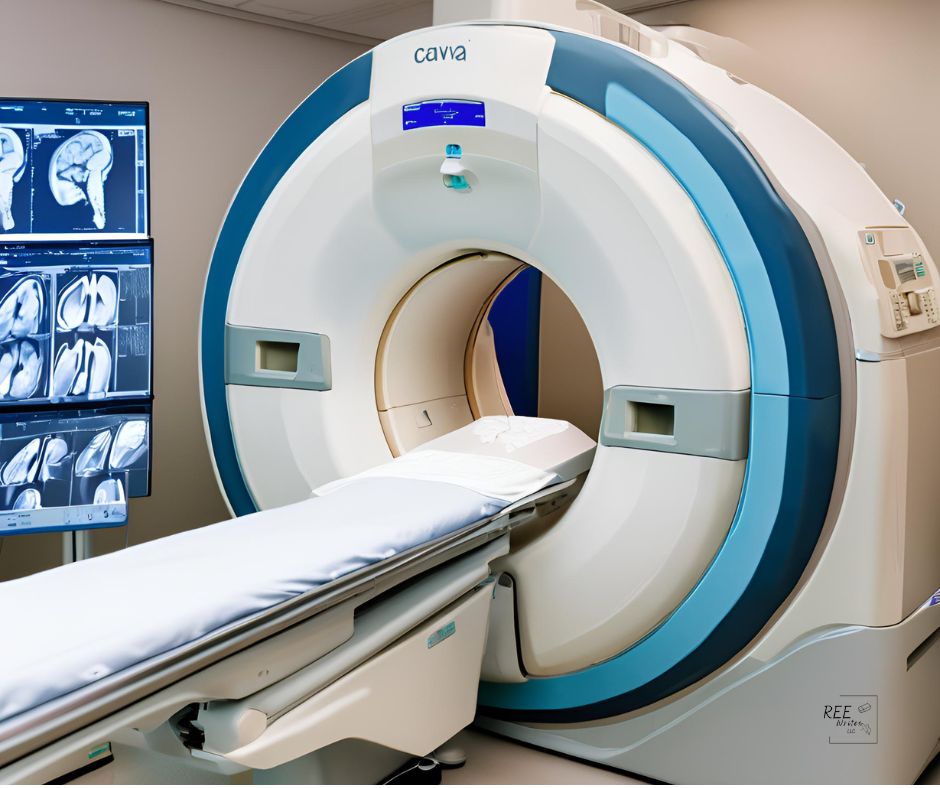Have you ever wished you could get instant medical advice without waiting for a doctor’s appointment? Or maybe you’ve found yourself wondering about a symptom in the middle of the night? Well, you’re not alone, and that’s where AI health chatbots come in.
The market segment for chatbots is expected to grow from $196 million in 2022 to approximately $1.2 billion by 2032 (Clark & Bailey, 2024). These digital health assistants are changing the game in healthcare, offering support and information around the clock. But what exactly are they, and how do they work?
Contents
What Are AI Health Chatbots?

AI health chatbots are smart computer programs that help patients with health-related information and support. These virtual health assistants use advanced technologies like natural language processing (NLP) and machine learning (ML). NLP and ML allows them to understand context and emotions in conversations, and respond to user queries in a human-like manner (Karlović, 2024).
Think of the virtual health assistant as your personal health companion to (Laranjo et al., 2018):
- Answer basic health questions
- Provide information about symptoms and conditions
- Offer medication reminders
- Guide you through simple diagnostic processes
Some popular AI health chatbots include:
- Ada Health: Assesses symptoms and navigates care
- Babylon Health: Offers health assessments and virtual doctor visits
- Healthily: Provides personalized health information and advice
Now that we understand the concept of AI health chatbots, let’s explore the various advantages they bring to healthcare.
Benefits of AI Health Chatbots
AI health chatbots have several advantages for both patients and healthcare providers.

24/7 availability
One of the most significant advantages of AI health chatbots is their round-the-clock availability. Have a health concern at 2 AM? Your chatbot is there to help, providing instant support when you need it.
Cost reduction
Chatbots are mostly free for patients. Some apps are covered by insurance when prescribed by a health provider (Clark & Bailey, 2024).
By handling routine inquiries and preliminary assessments, chatbots can significantly reduce healthcare costs, especially when the patient does not have to see a health provider in person. They free up health providers for more complex tasks, leading to more efficient resource allocation.
For example, GlaxoSmithKline launched 16 virtual assistants within 10 months, resulting in improved customer satisfaction and employee productivity (Winchurch, 2020).
Improved patient engagement and satisfaction
Chatbots make it easier for patients to engage with their health–even for older adults (Clark & Bailey, 2024). They provide a low-barrier way to ask questions and learn about health topics, improving overall health literacy (Bickmore et al., 2016). They’re also easier to use than a traditional patient portal or telehealth system, which saves time.
Faster triage
In an emergency, every second counts. AI chatbots can quickly assess symptoms and help determine the urgency of a situation, potentially saving lives by ensuring rapid response to critical cases (Razzaki et al., 2018).
The benefits we’ve discussed here come from a range of key features that AI health chatbots offer. Let’s take a closer look at these capabilities.
Key Features of AI Chatbots in Healthcare

AI health chatbots come packed with features designed to support various aspects of healthcare. Some of the uses of health chatbots include (Clark & Bailey, 2024):
- Physical wellbeing
- Chronic conditions
- Mental health
- Substance use disorders
- Pregnancy
- Sexual health
- Public health
Let’s discuss some of the use cases and applications for AI health chatbots.
Appointment scheduling
AI chatbots can manage appointments, allowing patients to easily book, reschedule, or cancel appointments without human intervention. It’s usually easier than doing so in a patient portal.
Symptom checking and preliminary diagnosis
Many chatbots offer an online symptom checker. You input your symptoms, and the chatbot asks follow-up questions to provide a preliminary assessment. While this doesn’t replace a doctor’s diagnosis, it can help you decide if you need to seek immediate medical attention (Semigran et al., 2015).
Medication reminders and management

Forget to take your pills? AI chatbots can send timely reminders, helping you stay on top of your medication schedule. Some even track your medication history and can alert you to potential drug interactions (Brar Prayaga et al., 2019).
Post-op care and chronic disease management
After an operation or minor surgery, a chatbot can guide the patient through the recovery process at any time, day or night. It can also answer questions about symptoms and concerns related to a chronic illness (ScienceSoft, n.d.).
Mental health support
AI chatbots are increasingly being used to provide mental health support. They can offer coping strategies, mood tracking, and even cognitive behavioral therapy exercises. While they don’t replace professional help, they can be a valuable first line of support (Fitzpatrick et al., 2017).
Health tracking and personalized recommendations

AI chatbots can track your health data over time by integrating with wearable devices and apps. They can then provide personalized health recommendations based on your activity levels, sleep patterns, and other health metrics (Stein & Brooks, 2017).
Healthcare systems can successfully implement AI chatbots by following a careful approach, as we’ll discuss next.
How to Integrate AI Chatbots in Healthcare Systems

Integrating AI health chatbots into existing healthcare systems requires careful planning and execution. Here’s a roadmap for successful implementation (Palanica et al., 2019 & Nadarzynski et al., 2019):
- Assess Needs and Set Goals: Before implementing a chatbot, healthcare providers should clearly define what they hope to achieve. Is the goal to reduce wait times, improve patient engagement, or streamline triage processes?
- Choose the Right Solution: Not all chatbots are created equal. Select a solution that aligns with your goals and integrates well with your existing systems.
- Ensure Data Security: Implement robust security measures to protect patient data. This includes encryption, secure authentication processes, and regular security audits.
- Train Healthcare Providers: It’s crucial to train your staff on how to work alongside these AI systems. They should understand the chatbot’s capabilities and limitations.
- Educate Patients: Clear communication with patients about the role and capabilities of the chatbot is essential. Set realistic expectations and provide guidance on how to use the system effectively.
- Start Small and Scale: Begin with a pilot program, gather feedback, and make improvements before rolling out the chatbot more broadly.
- Continuous Monitoring and Improvement: Regularly assess the chatbot’s performance. Are patients finding it helpful? Are there common issues or misunderstandings? Use this data to continually refine and improve the system.
- Measure Impact: Track key performance indicators (KPIs) to measure the impact of the chatbot. This might include metrics like patient satisfaction scores, reduction in wait times, or cost savings.
While AI health chatbots offer impressive features and benefits, it’s important to acknowledge and address the challenges that come with using them in healthcare.
Addressing Concerns and Limitations of AI Health Chatbots

While AI health chatbots offer numerous benefits, they also come with their fair share of challenges and limitations. It’s important to be aware of these as we continue to integrate these technologies into our healthcare systems.
Accuracy concerns
One of the primary concerns with AI health chatbots is the potential for misdiagnosis. While these systems are becoming increasingly sophisticated, they’re not infallible. A chatbot might misinterpret symptoms or fail to consider important contextual information that a human doctor would catch (Fraser et al., 2018).
Another reason chatbots could share inaccurate information is that AI health chatbots use fixed datasets, which may not include the latest medical info. Unlike doctors who can access current data, chatbots might give outdated advice on health topics (Clark & Bailey, 2024).
Data privacy and security

Healthcare data is highly sensitive, and the use of AI chatbots raises important questions about data privacy. How is patient data stored and protected? Who has access to the information shared with these chatbots? These are critical issues that need to be addressed to ensure patient trust and comply with regulations like HIPAA (Luxton, 2019).
Federated learning is a new way to train AI models that keeps data private. It lets different groups work together on an AI model without sharing their actual data. Instead, each group trains the model on their own computers using their own data. They only share updates to the model, not the data itself. Hospitals and researchers can team up to create better AI models while keeping patient information safe and private (Sun & Zhou, 2023).
Ethical considerations
The use of AI in healthcare raises several ethical questions. For instance, how do we ensure that these systems don’t perpetuate biases in healthcare? There’s also the question of accountability – who’s responsible if a chatbot provides incorrect advice that leads to harm (Vayena et al., 2018)?
Bias in AI Algorithms

AI chatbots in healthcare raise concerns about bias and fairness. If the data used to train these chatbots isn’t diverse or has built-in biases, the chatbots might make unfair decisions. This could lead to some groups getting worse healthcare.
Bias can come from many sources, like choosing the wrong data features or having unbalanced data. Sometimes, chatbots might learn the training data too well and can’t handle new situations.
To fix these problems, we need to be aware of possible biases, work to prevent them, and keep checking chatbots after they’re in use. This helps ensure AI chatbots benefit everyone equally in healthcare (Sun & Zhou, 2023).
Integration challenges
Implementing AI chatbots into existing healthcare systems isn’t always straightforward. There can be technical challenges in integrating chatbots with electronic health records (EHRs) and other healthcare IT systems. Ensuring seamless data flow while maintaining security is a complex task (Miner et al., 2020).
Patient trust
Building and maintaining patient trust is crucial for the success of AI health chatbots. Some patients may be hesitant to share personal health information with a machine, preferring the human touch of traditional healthcare interactions.
Trustworthy AI (TAI) helps explain how AI chatbots work, balancing complex math with user-friendly results. It’s important for building trust in AI systems. While progress has been made, more work is needed to make AI chatbots more transparent and trustworthy (Sun & Zhou, 2023).
Doctors and nurses do more than diagnose–they offer comfort and build trust with patients. AI chatbots can’t replace this human touch or handle complex medical issues that need deep expertise.
It’s not all doom and gloom! Exciting trends are shaping the future of AI health chatbot technology.
Future Trends in AI Health Chatbot Technology

AI chatbots are useful medical tools, especially where healthcare access is limited. The combo of AI efficiency and human empathy can improve healthcare. The future likely involves doctors handling complex cases and emotional care, with chatbots supporting them, depending on tech advances, acceptance, and regulations (Altamimi et al., 2023). Here are some exciting trends to watch.
Advanced NLP
Future chatbots will likely have an even better understanding of context and nuance in language. They might be able to detect subtle cues in a patient’s language that could indicate underlying health issues.
Integration with IoT and wearables

As the Internet of Things (IoT) expands in healthcare, chatbots will likely become more integrated with wearable devices and smart home technology. Imagine a chatbot that can access real-time data from your smartwatch to provide more accurate health advice.
Personalized medicine
AI chatbots could play a crucial role in the move towards personalized medicine. By analyzing vast amounts of patient data, they could help tailor treatment plans to individual genetic profiles and lifestyle factors.
Enhanced diagnostic capabilities
While current chatbots are limited to preliminary assessments, future versions might have more advanced diagnostic capabilities. They could potentially analyze images or audio recordings to aid in diagnosis.
Support for clinical trials
AI chatbots could streamline the process of clinical trials by helping to recruit suitable participants, monitor adherence to trial protocols, and collect data.
AI health chatbots are making healthcare easier to access, more personal, and more efficient. They offer 24/7 support, lower costs, and get patients more involved in their health. But there are still issues to solve, like making sure they’re accurate, keeping data private, and fitting them into current healthcare systems.
As tech improves, these chatbots will get smarter and play a bigger role in healthcare. It’s important for everyone – doctors and patients – to keep up with these changes.
Whether you work in healthcare or you’re just curious, now’s the time to try out these chatbots. By staying informed, we can use technology to make healthcare better, without losing the human connection.
Have you used AI health chatbots before? What are your thoughts on them?
References
AI-Powered Chatbots for Healthcare. (n.d.) ScienceSoft. Retrieved from https://www.scnsoft.com/healthcare/chatbots
Altamimi, I., Altamimi, A., Alhumimidi, A. S., Altamimi, A., & Temsah, H. (2023). Artificial Intelligence (AI) Chatbots in Medicine: A Supplement, Not a Substitute. Cureus, 15(6). doi.org/10.7759/cureus.40922
Bickmore, T. W., Utami, D., Matsuyama, R., & Paasche-Orlow, M. K. (2016). Improving access to online health information with conversational agents: a randomized controlled experiment. Journal of Medical Internet Research, 18(1), e1.
Brar Prayaga, R., Jeong, E. W., Feger, E., Noble, H. K., Kmiec, M., & Prayaga, R. S. (2019). Improving refill adherence in Medicare patients with tailored and interactive mobile text messaging: pilot study. JMIR mHealth and uHealth, 7(1), e11429.
Clark, M. & Bailey, S. (2024). Chatbots in Health Care: Connecting Patients to Information. CADTH Horizon Scans. Canadian Agency for Drugs and Technologies in Health. Retrieved from https://www.ncbi.nlm.nih.gov/books/NBK602381/
Fitzpatrick, K. K., Darcy, A., & Vierhile, M. (2017). Delivering cognitive behavior therapy to young adults with symptoms of depression and anxiety using a fully automated conversational agent (Woebot): a randomized controlled trial. JMIR Mental Health, 4(2), e19.
Fraser, H., Coiera, E., & Wong, D. (2018). Safety of patient-facing digital symptom checkers. The Lancet, 392(10161), 2263-2264.
Karlović, M. (2024). 14 ways chatbots can elevate the healthcare experience. Infobip. Retrieved from https://www.infobip.com/blog/healthcare-ai-chatbot-examples
Laranjo, L., Dunn, A. G., Tong, H. L., Kocaballi, A. B., Chen, J., Bashir, R., … & Coiera, E. (2018). Conversational agents in healthcare: a systematic review. Journal of the American Medical Informatics Association, 25(9), 1248-1258.
Luxton, D. D. (2019). Ethical implications of conversational agents in global public health. Bulletin of the World Health Organization, 97(4), 254.
Miner, A. S., Laranjo, L., & Kocaballi, A. B. (2020). Chatbots in the fight against the COVID-19 pandemic. NPJ Digital Medicine, 3(1), 1-4.
Nadarzynski, T., Miles, O., Cowie, A., & Ridge, D. (2019). Acceptability of artificial intelligence (AI)-led chatbot services in healthcare: A mixed-methods study. Digital Health, 5, 2055207619871808.
Palanica, A., Flaschner, P., Thommandram, A., Li, M., & Fossat, Y. (2019). Physicians’ Perceptions of Chatbots in Health Care: Cross-Sectional Web-Based Survey. Journal of Medical Internet Research, 21(4), e12887.
Razzaki, S., Baker, A., Perov, Y., Middleton, K., Baxter, J., Mullarkey, D., … & Majeed, A. (2018). A comparative study of artificial intelligence and human doctors for the purpose of triage and diagnosis. arXiv preprint arXiv:1806.10698.
Semigran, H. L., Linder, J. A., Gidengil, C., & Mehrotra, A. (2015). Evaluation of symptom checkers for self diagnosis and triage: audit study. BMJ, 351, h3480.
Stein, N., & Brooks, K. (2017). A fully automated conversational artificial intelligence for weight loss: longitudinal observational study among overweight and obese adults. JMIR Diabetes, 2(2), e28.
Sun, G., & Zhou, H. (2023). AI in healthcare: Navigating opportunities and challenges in digital communication. Frontiers in Digital Health, 5. doi.org/10.3389/fdgth.2023.1291132
Vayena, E., Blasimme, A., & Cohen, I. G. (2018). Machine learning in medicine: Addressing ethical challenges. PLoS Medicine, 15(11), e1002689.
Winchurch, E. (2020). How GlaxoSmithKline launched 16 virtual assistants in 10 months with watsonx Assistant. IBM. Retrieved from https://www.ibm.com/products/watsonx-assistant/healthcare





















